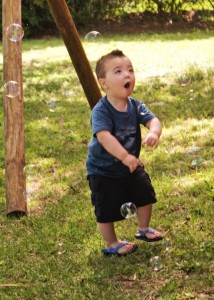 Healthy touch and massage provides an avenue for meeting children’s emotional needs,strengthening attachment, and improving brain regulation. One of the ways the lower brain develops is through touch used in patterned, repetitive, rhythmic ways. Continue reading…
Healthy touch and massage provides an avenue for meeting children’s emotional needs,strengthening attachment, and improving brain regulation. One of the ways the lower brain develops is through touch used in patterned, repetitive, rhythmic ways. Continue reading…
Using Massage and Healthy Touch with your Child
Connecting Discipline vs. Distancing Discipline
 Discipline can be extremely frustrating and sometimes it seems like nothing works. Thinking of discipline as a way to connect with your child can seem like an oxymoron, but it doesn’t have to be. As a parent, you can discipline your child while maintaining a positive connection rather than creating distance. Think about it … Continue reading…
Discipline can be extremely frustrating and sometimes it seems like nothing works. Thinking of discipline as a way to connect with your child can seem like an oxymoron, but it doesn’t have to be. As a parent, you can discipline your child while maintaining a positive connection rather than creating distance. Think about it … Continue reading…
Simple Limit-Setting with your Child
 There are many ways to set limits with your child with little effort. One simple way to set limits with your child (or anyone in your life for that matter) is A.C.T.
There are many ways to set limits with your child with little effort. One simple way to set limits with your child (or anyone in your life for that matter) is A.C.T.
A: Acknowledge the feeling
C: Communicate the limit
T: Target Choices Continue reading…
Could My Child Have Sensory Processing Problems?

Does your child have a fit every time you are in a restaurant? Does your child have a meltdown when it’s time to visit friends or family? Do you leave the grocery store with a flailing, screaming child most weekends? Sensory integration challenges could be playing a role. Continue reading…
Meltdown and Tantrum Prevention Checklist

Many children struggle with emotional dysregulation due to trauma histories, sensory processing challenges and/or developmental delays which can lead to tantrums and meltdowns.
There are several ways we can support emotional regulation in our children which will lead to decreased tantrums and happier children. This checklist is your first step on the path to understanding how to support your child’s regulation. Continue reading…
Building your Child’s Self-Esteem with Descriptive Praise
 Evaluative Praise vs. Descriptive Praise
Evaluative Praise vs. Descriptive Praise
Many parents with good intentions use evaluative praise with their children without recognizing it. Many of our own parents used evaluative praise with us as children so it’s second nature to pass this along in our parenting. Of course, recognizing our children’s positive behavior is more likely to build self-esteem Continue reading…

0 Comments